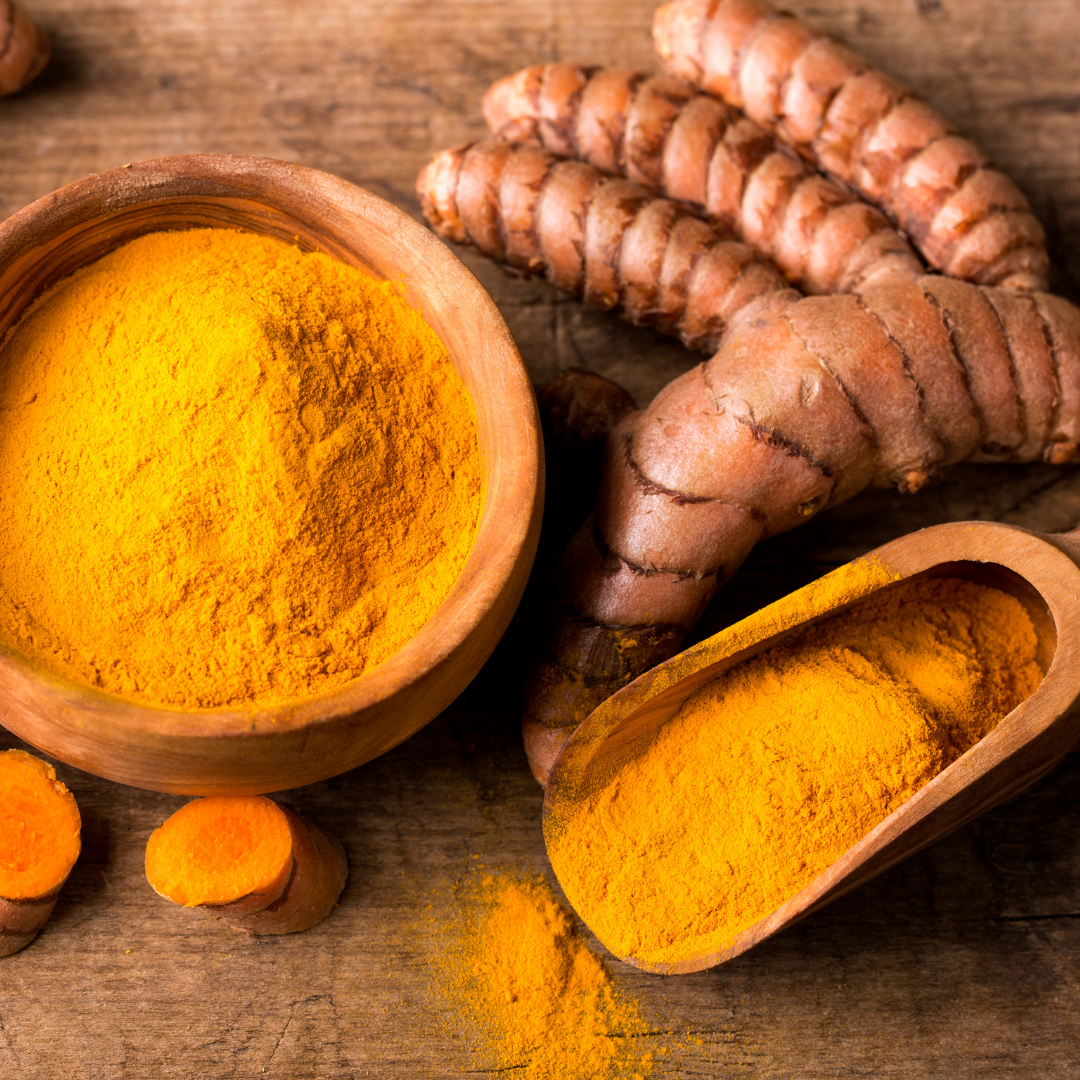
Turmeric
Scientific Name: Curcuma longa
Common Name: Turmeric
Health Benefits:
Potent Anti-Inflammatory Properties:
- Contains curcumin, a powerful compound that helps reduce inflammation, making it beneficial for arthritis, joint pain, and other inflammatory conditions.
Rich in Antioxidants:
- Curcumin acts as a potent antioxidant, protecting cells from damage caused by free radicals and supporting overall health.
Supports Digestive Health:
- Aids in reducing symptoms of bloating, gas, and indigestion by stimulating bile production.
- May support gut health by reducing inflammation in the digestive tract.
Promotes Heart Health:
- May help reduce cholesterol levels and improve blood vessel function, lowering the risk of heart disease.
Boosts Brain Health:
- Curcumin enhances levels of brain-derived neurotrophic factor (BDNF), which supports cognitive function and memory.
- May help delay or reverse age-related brain disorders, including Alzheimer’s disease.
Supports Immune System Function:
- Curcumin's antimicrobial and anti-inflammatory properties strengthen the immune system and help fight infections.
Vitamins and Minerals:
- Vitamin C: Supports immunity and skin health.
- Iron: Essential for oxygen transport in the blood.
- Manganese: Aids in bone formation and metabolism.
- Potassium: Helps maintain fluid balance and supports heart health.
Active Compounds:
- Curcumin: The primary bioactive compound responsible for turmeric’s anti-inflammatory, antioxidant, and health-promoting effects.
- Turmerones: Volatile oils that may support brain health and enhance the absorption of curcumin.
Safety Information:
Absorption:
- Curcumin has low bioavailability, so it’s best consumed with black pepper (which contains piperine) to enhance absorption.
Drug Interactions:
- May interact with blood thinners, diabetes medications, or stomach acid reducers. Consult a healthcare provider if you are on such medications.
Stomach Sensitivity:
- High doses may cause gastrointestinal discomfort, such as nausea or diarrhea.
- Safe when consumed as a spice or tea in moderate amounts. Supplements should be taken as directed.
Forms of Turmeric:
- Ground Turmeric: Common in cooking, teas, and spice blends.
- Fresh Turmeric Root: Used in recipes, teas, or smoothies for a stronger flavor.
- Turmeric Supplements: Capsules or extracts, often combined with black pepper for enhanced absorption.
Fun Fact:
Turmeric has been used in Ayurvedic and traditional Chinese medicine for over 4,000 years to treat a variety of conditions, from digestive issues to skin disorders.
Note:
This information is for educational purposes only and is not intended to replace medical advice. Always consult with a healthcare professional before using herbal products, especially if you are pregnant, nursing, or taking any medications.



